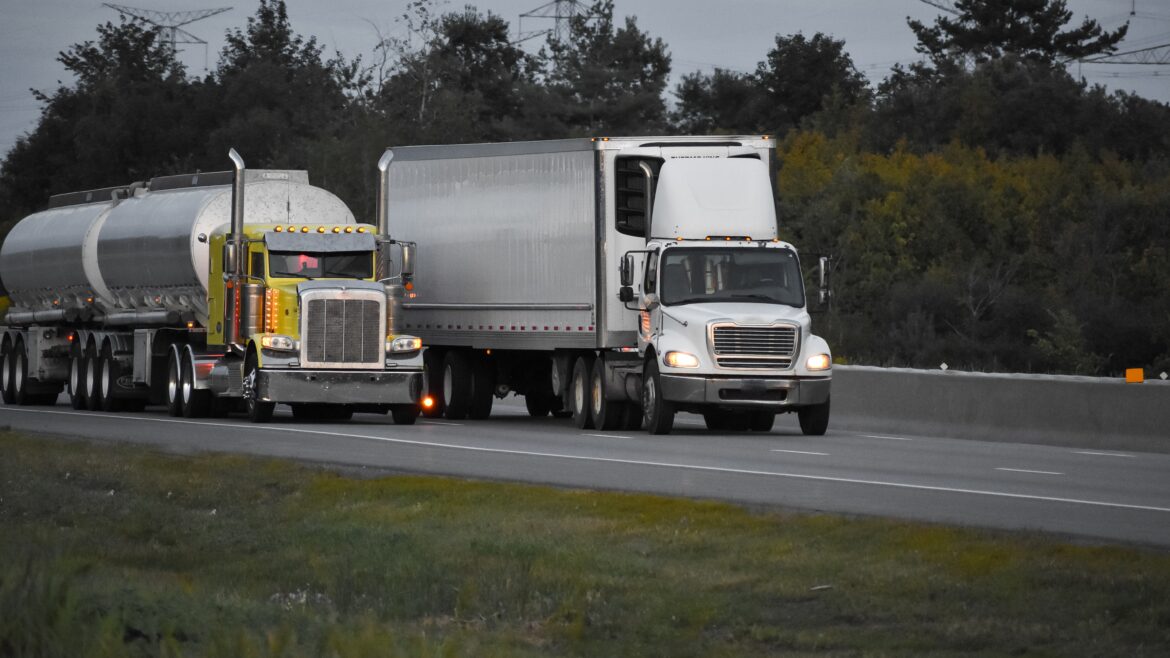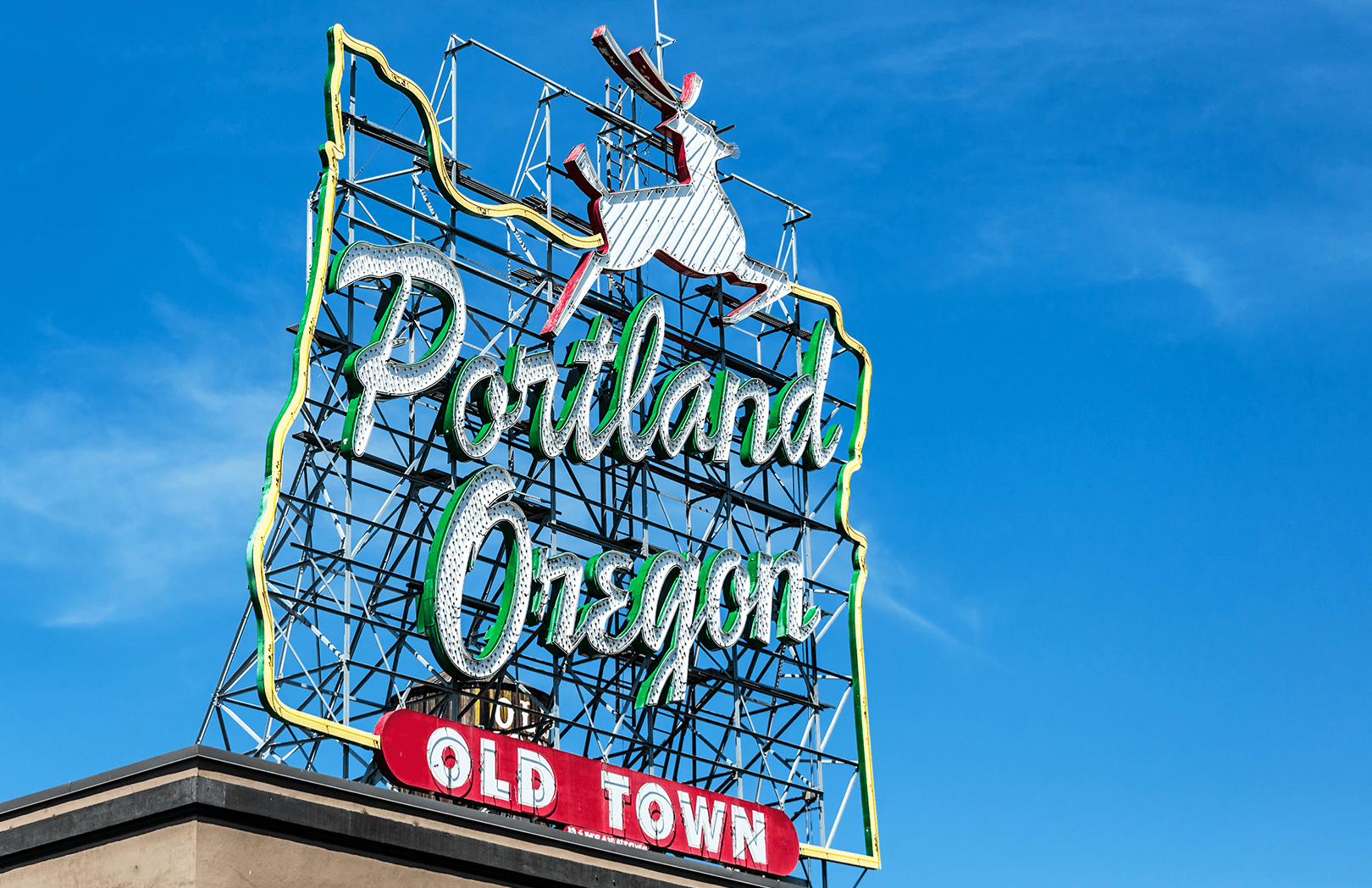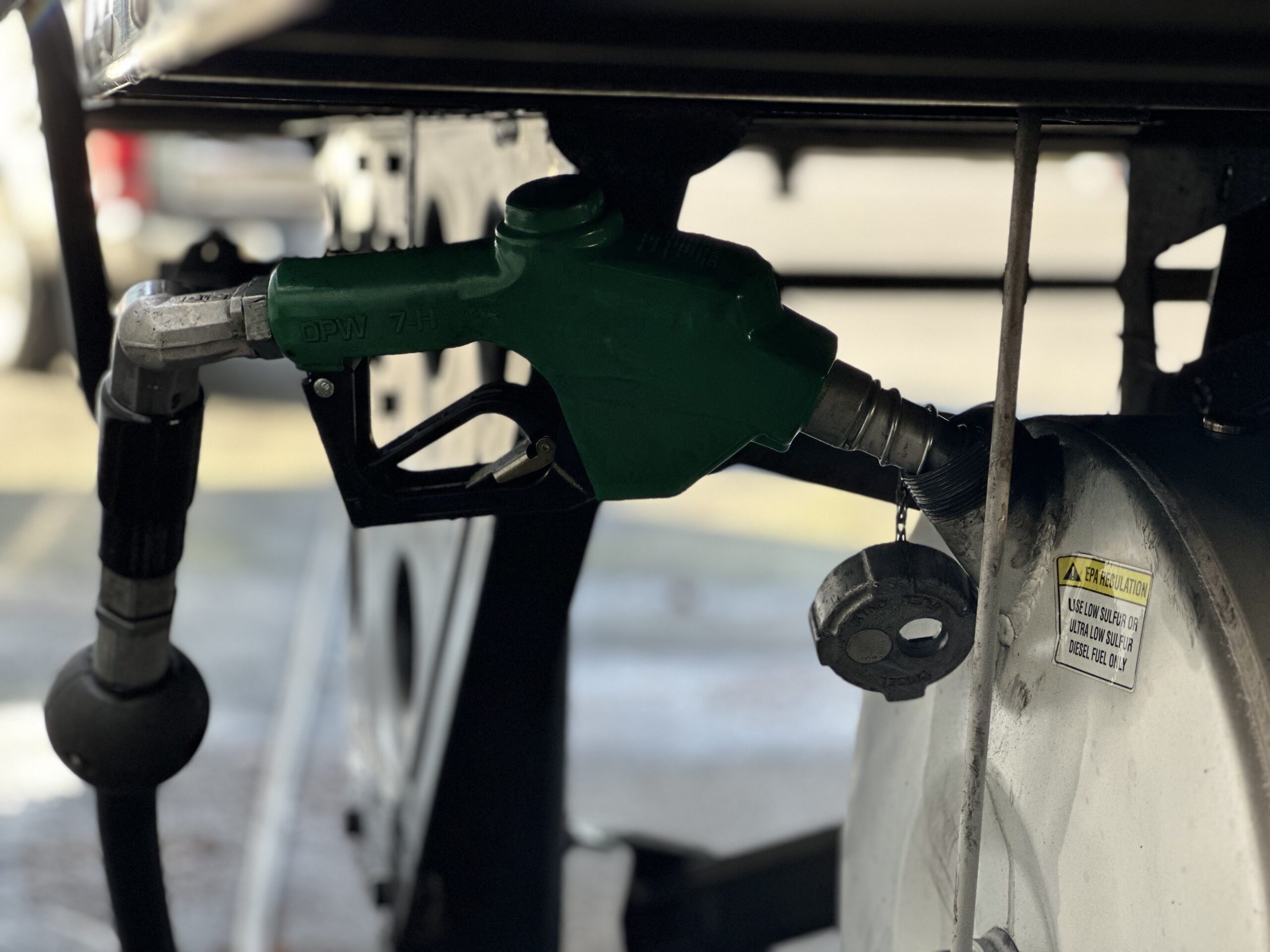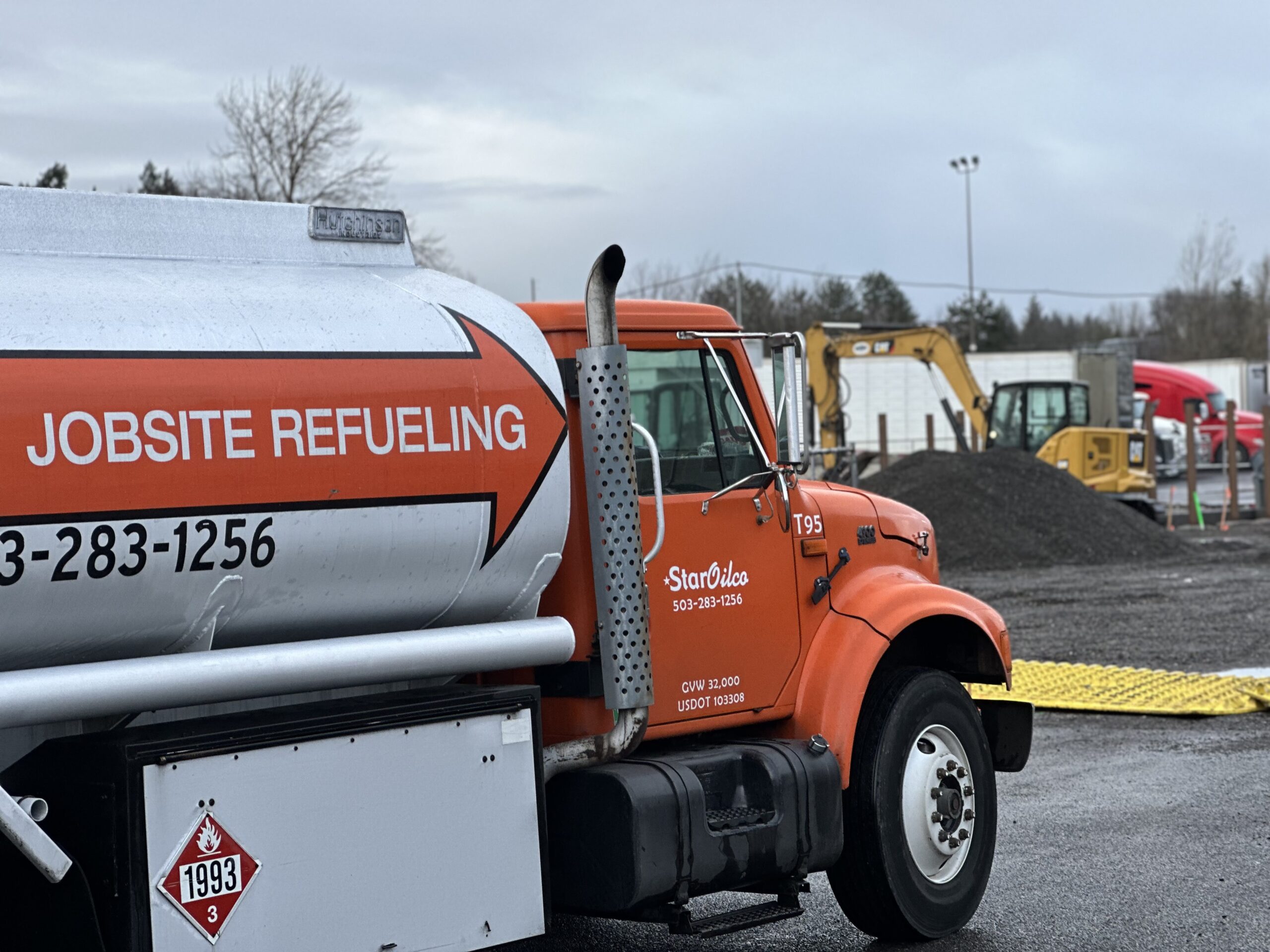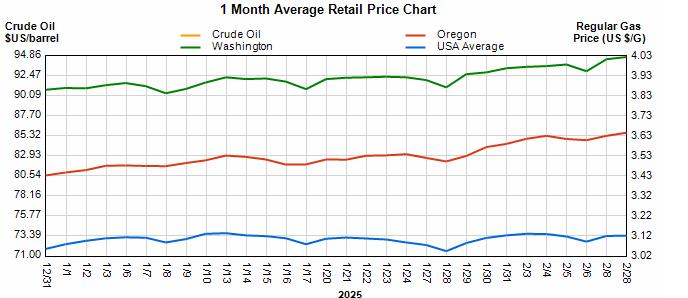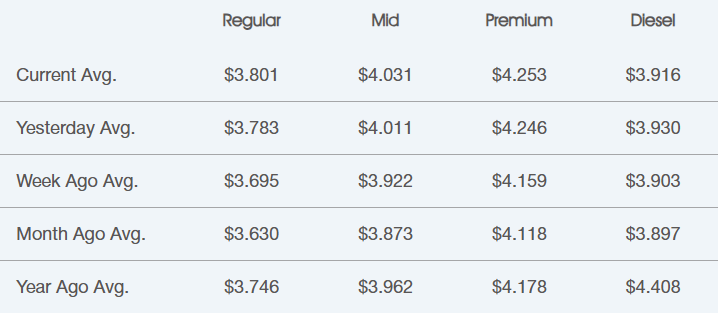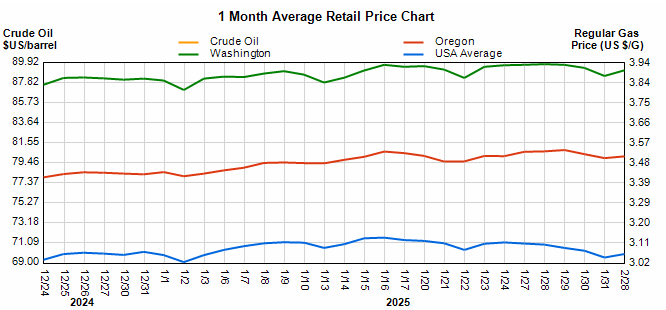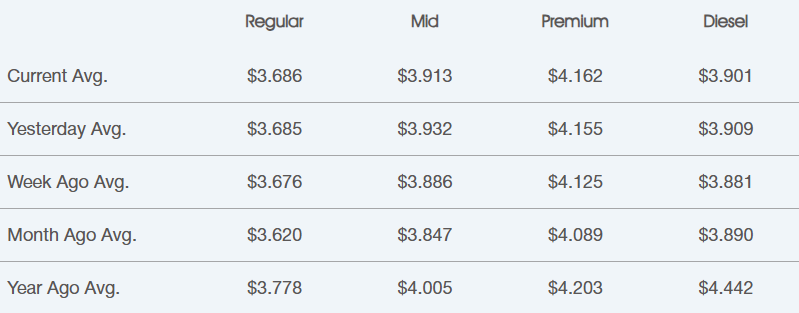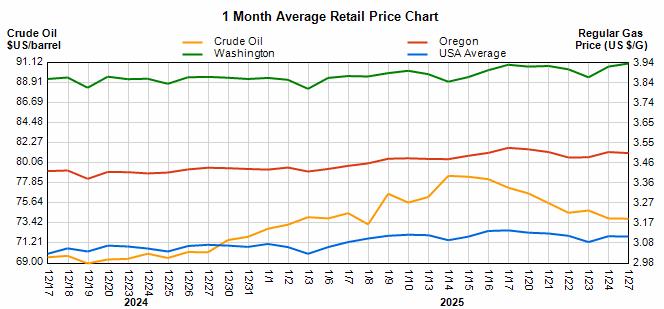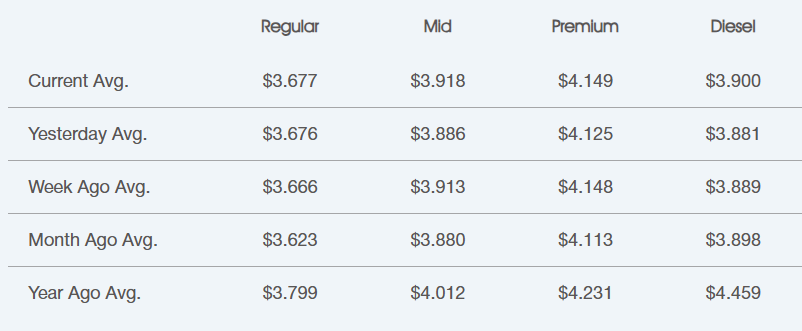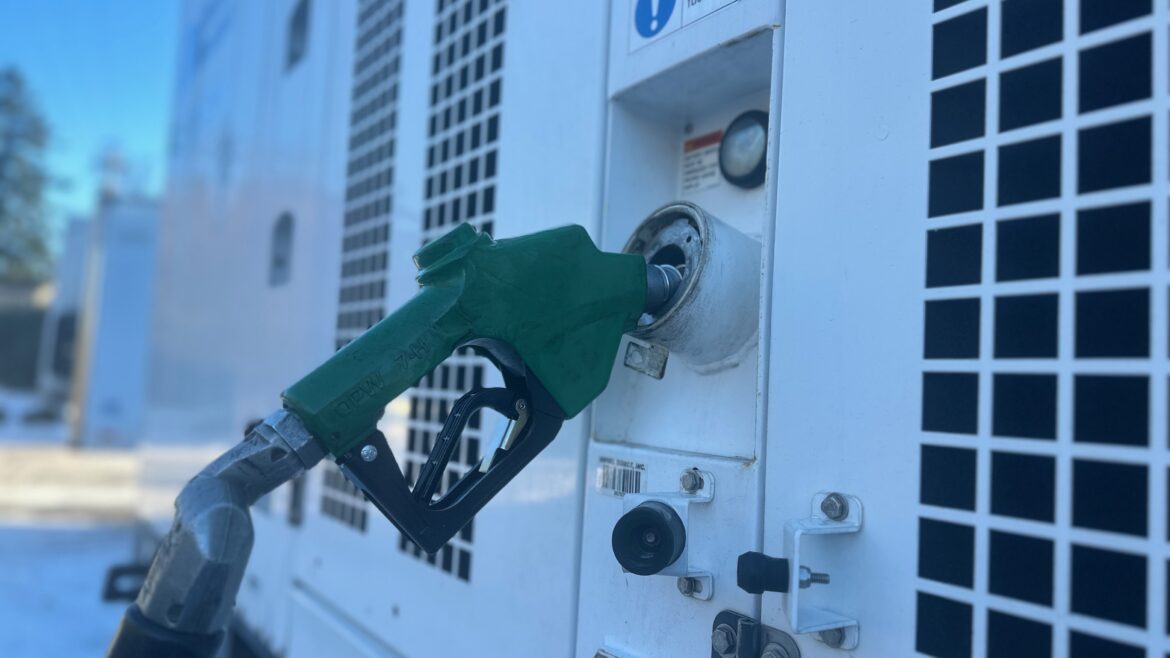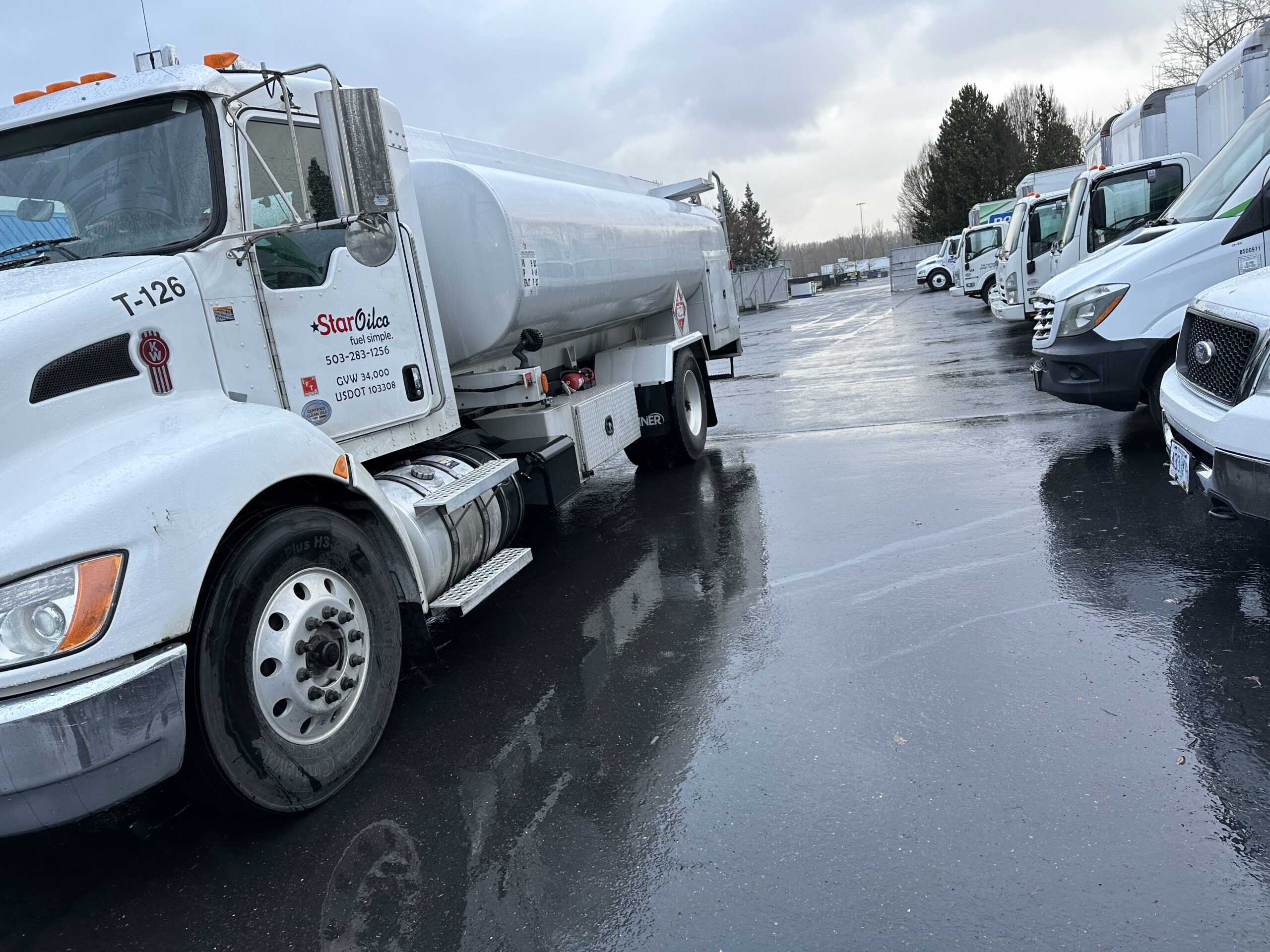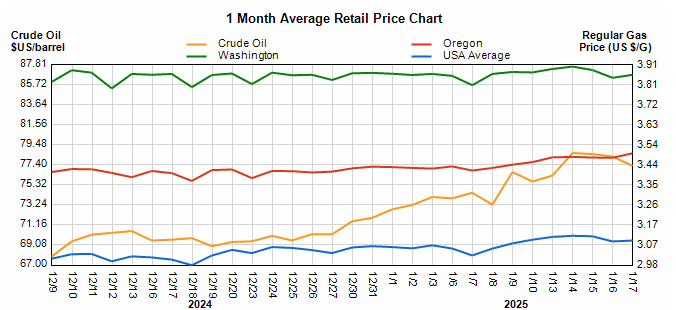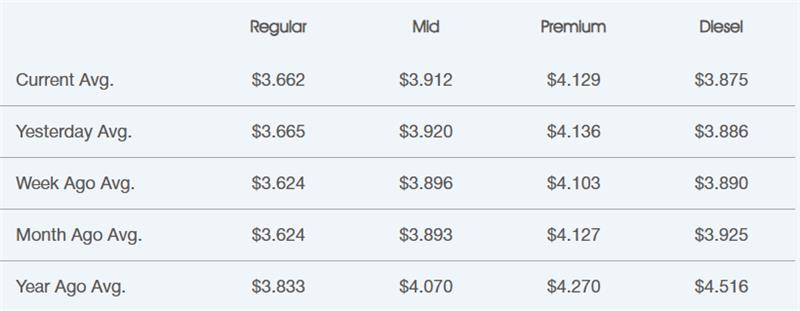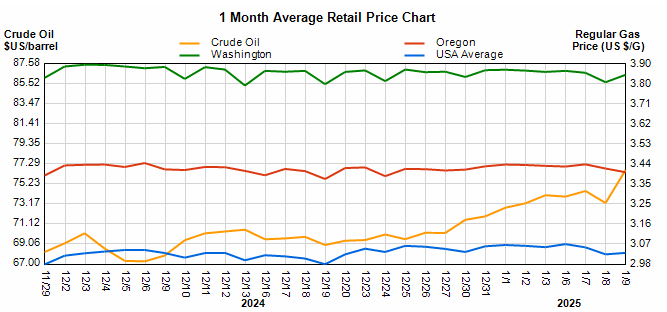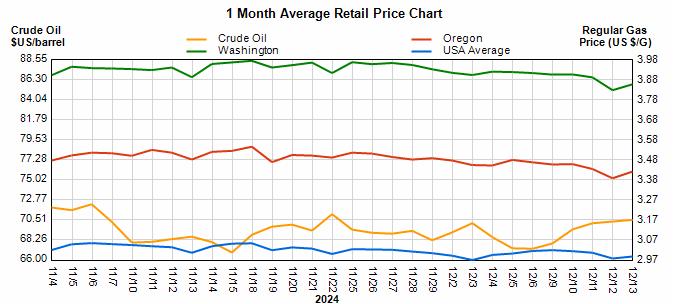Fuel Market Report: Feb 23rd – March 1st, 2025
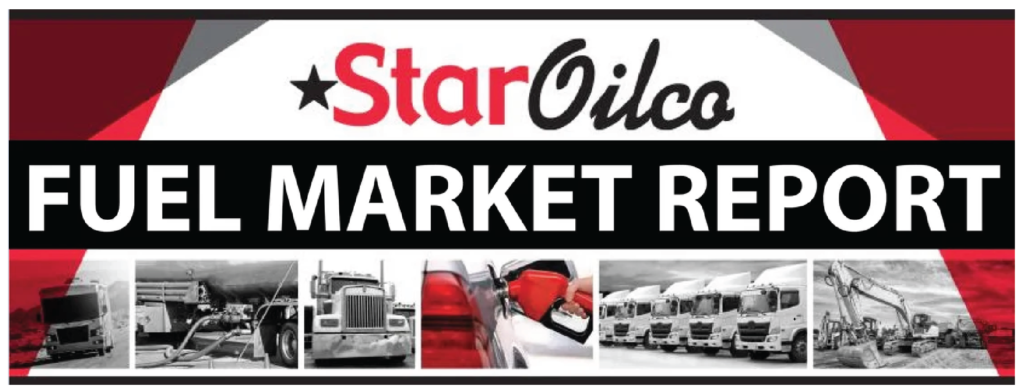
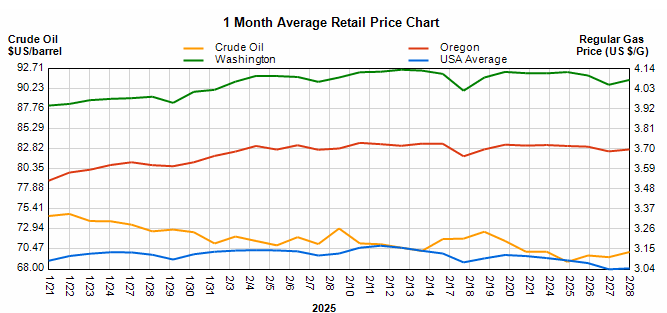
Wholesale Price Average 2/22/25
| Wholesale Low | Wholesale Avg | |
|---|---|---|
| E10 | $2.46 | $2.53 |
| B5 | $2.43 | $2.54 |
| B20 | $2.49 | $2.58 |
Average Retail Prices 2/22/25
| National | Oregon | Washington | |
|---|---|---|---|
| E10 | $3.14 | $3.77 | $4.15 |
| B5 | $3.67 | $3.87 | $4.42 |
Taxes
| Federal | State: OR | Local | State: WA | |
|---|---|---|---|---|
| Gas | $0.184 | $0.40 | $0-.13 | $0.494 |
| Diesel | $0.244 | $0.40 | $0-.13 | $0.494 |
Oregon Fuel Price Variance

Fuel Market News
It was an interesting week for price variances to close out February, as B5 and E10 prices fell, and B20 prices jumped. Portland rack averages jumped $0.09/gal for B20 while falling $0.03/gal for B5 and 0.06/gal for E10. This is the time of year we normally see prices experience upward fluctuation as refineries begin seasonal maintenance while switching from winter to summer fuel. With all of this in play, oil prices have remained relatively low for the past 3 weeks which has kept price jumps lower than expected.
President Trump’s tariffs on Canada & Mexico will take place on Tuesday, which has many analysts preparing for the unknown impacts they will carry. Uncertainty has seemingly been a theme for the first 90 days of Trump’s second Presidency as many markets are bracing for what could come next. Such uncertainties have trickled into the marine transportation industry as vessel owners are weary of entering long-term charter deals for oil tankers.
Oregonians may be in store for higher diesel prices this year with the end of Blenders Tax Credits, the introduction of the Producers Tax Credit & the Oregon Climate Protection Program going into 2025. For more on this report visit the link below.
2025 Fuel Market Outlook: Oregon
Winter season is upon us; although weather conditions have been moderate thus far, a storm can quickly change that. To avoid any power outages for your operations, be sure your backup generators are topped off and ready to trigger when needed.
Get your generators topped off
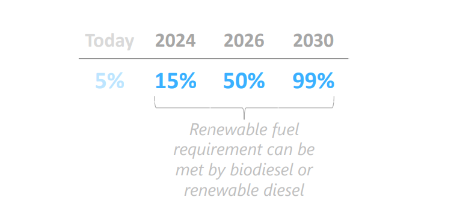
Important Note: Per the City Of Portland, “Distributors in the City of Portland are required to meet the minimum biofuel content requirements for all fuel they distribute beginning on May 15, 2024. All diesel fuel distributed to retail stations, non-retail dealers, or wholesale purchaser-consumers must include a minimum of 15% biofuel content, from either renewable diesel or biodiesel. This requirement increases to 50% on May 15, 2026, and 99% on May 15, 2030”.
Crude oil traded below $70 this past week, at a current price of $68.22/barrel. This is $2.96/lower than it was last week.
Crude oil is the main ingredient for gasoline and diesel. Per AAA, on average about 50% of what you pay at the pump is the price of crude oil, breaking down as 25% refining, 11% distribution & marketing, and 14% taxes—a helpful breakdown for consumers wondering why they are paying the prices that they pay. Crude Oil is currently trading at $68.22/barrel compared to $71.18/barrel., last week and $72 a year ago.
Fuel prices result from a complex interplay of the factors mentioned above and other factors regionally. Additionally, prices may vary by specific regions within Oregon and Washington. For the most precise and up-to-date information on fuel prices and the causes for these price changes within your area, use the links below for AAA & GasBuddy.
If you have any questions, feel free to contact Star Oilco and speak to one of our fuel market advisors to discuss how the market can impact your business.


